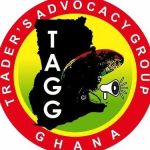The Ghana cedi is expected to depreciate as demand for dollars heightens due to the ongoing demand for dollars from local businesses.
The local unit has come under intense pressure against the US dollar especially in the first quarter of 2024.
This has resulted in a depreciation of about 6.8% against the dollar, says the Bank of Ghana.
However, on the retail market, the cedi has lost more than 8.0% in value to the dollar.
The commercial banks quoted GH¢13.08 pesewas while forex bureaus on the other hand were selling one dollar for GH¢13.70 as of March 26, 2024.
As the Bank of Ghana prepares to auction $120 million to Bulk Oil Distribution Companies (BDCs) in the second quarter of 2024, ongoing dollar demand from local businesses, particularly in the energy, pharmaceuticals, traders, and manufacturing sectors, could cause the depreciation of the Ghana cedi to persist this week.
Since the beginning of the year, the cedi has devalued by approximately 10% against the US dollar, and this trend is expected to persist if the pressures driving dollar demand continue.
After receiving about $2 billion from the IMF, World Bank, and AfDB combined, Ghana seems to be returning to its 2022 level, where the cedi was no match for the US dollar.
As the depreciation story continues, it is projected that the recent visit of the IMF Managing Director may help expedite debt rework negotiations between Ghana and its commercial creditors.
Ghana has been saddled with several economic challenges ranging from; unstable power supply, and partial internet shutdown, and on top of the list is a depreciating domestic currency.
The country has still not been able to find an effective way to deal with its economic crisis, which gained momentum in 2022.
One of Ghana’s main sources of foreign exchange, cocoa, is facing a shortage as the country falls short of its targeted yield, leading to gaps in supply and demand.
Recent data from the Bank of Ghana reveals that Ghana collected less revenue from cocoa exports in the first two months of 2024 compared to the previous year.
Despite the increase in prices, cocoa exports dropped from $711.5 million to $508.4 million during the first two months, resulting in a nearly 29% decrease in foreign exchange earnings from cocoa bean sales.
A $3 billion IMF bailout package is expected to wind down the impact on ordinary Ghanaians and give life to key economic indicators.
Almost a year after implementing the first phase of the IMF programme, inflation has dropped from a 2022 peak of 54% to 23.5% in February 2024, signaling a positive outcome.
Beyond inflation, critical indicators such as exchange rate and unemployment have failed to yield the intended outcomes.
However, the Governor of the Bank of Ghana, Dr. Ernest Addison, is optimistic the Ghana cedi will remain relatively stable against the US dollar going forward.
According to him, this is due to strong reserves built by his outfit over the period.
“This is based on some strong reserves that the Bank of Ghana has built over the past months to support the cedi, some fresh monetary measures being implemented, and strict enforcement of the foreign exchange regulations”.
“We are now reporting reserves of more than $6.0 billion, and therefore the underlying factors that caused those pressures in the past have improved greatly”, Dr. Addison disclosed.
The Governor also said there had been improved remittance inflows and all these should support the currency in the coming months.
He was responding to a question on whether the cedi’s recent woes were over.
He mentioned that the measures instituted by his outfit over the past months, and in 2023, would respond positively.
“We believe that all these developments should give the market some assurance that the cedi’s outlook will remain favourable”.
Below are the average interbank rates used by commercial banks for transactions at the close of business, Tuesday, March 19, 2024.
Bank of Ghana Exchange Rates pic.twitter.com/hnX5OcQUvX
— Bank of Ghana (@thebankofghana) March 20, 2024
















